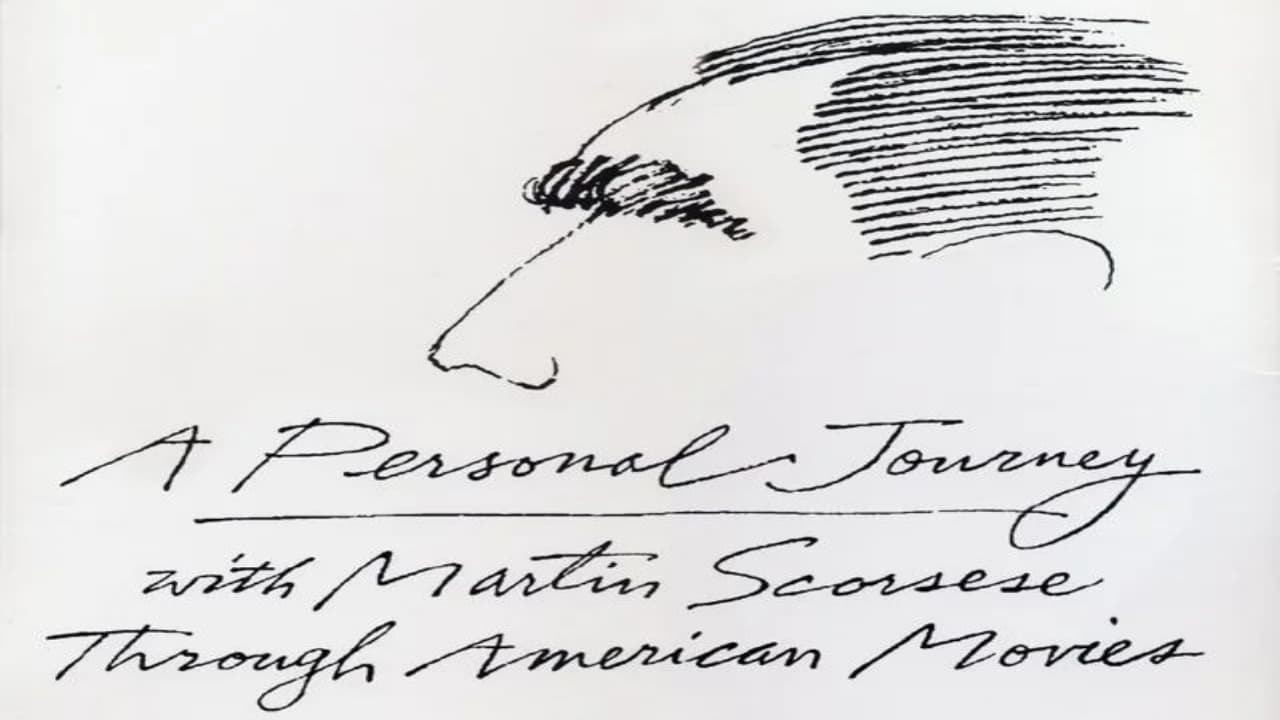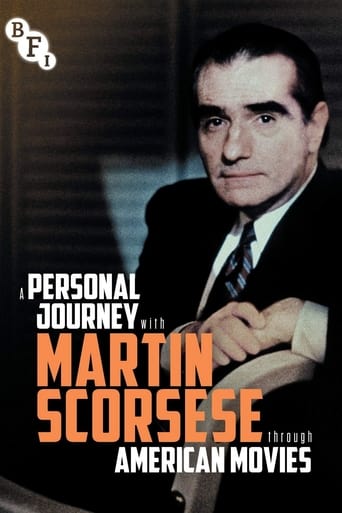

I was in danger of getting a neck cramp watching this movie, from all the nodding I was doing. Nodding in agreement with Scorsese's observations and especially his choice of films. It might have been called "A Personal Journey Through My DVD Collection" as he touched on many of my personal favorites, too many to start listing. His selection avoids many of the obvious milestones and leans towards the more obscure (although in the DVD era, most of them are widely available and now highly-regarded), especially when it comes to my beloved film noir. His passion is clear, his knowledge is thorough, and his comments are insightful. The documentary flows nicely, although occasionally he dwells on a certain clip or movie for too long. I can't say I learned a lot from this movie, but I did pick up a couple of new titles to check out, and it should be a fantastic intro for blossoming film buffs.
... View MoreProlific and highly influential filmmaker Martin Scorsese examines a selection of his favorite American films grouped according to three different types of directors: the director as an illusionist: D.W. Griffith or F. W. Murnau, who created new editing techniques among other changes that made the appearance of sound and color later step forward; the director as a smuggler: filmmakers such as Douglas Sirk, Samuel Fuller, and mostly Vincente Minnelli, directors who used to disguise rebellious messages in their films; and the director as iconoclast: those filmmakers attacking civil observations and social hang-ups like Orson Welles, Erich von Stroheim, Charles Chaplin, Nicholas Ray, Stanley Kubrick, and Arthur Penn.He shows us how the old studio system in Hollywood was, though oppressive, the way in which film directors found themselves progressing the medium because of how they were bound by political and financial limitations. During his clips from the movies he shows us, we not only discover films we've never seen before that pique our interest but we also are made to see what he sees. He evaluate his stylistic sensibilities along with the directors of the sequences themselves.The idea of a film canon has been reputed as snobbish, hence some movie fans and critics favor to just make "lists." However, canon merely denotes "the best" and supporters of film canon argue that it is a valuable activity to identify and experience a select compilation of the "best" films, a lot like a greatest hits tape, if just as a beginning direction for film students. All in all, one's experience has shown that all writing about film, including reviews, function to construct a film canon. Some film canons can definitely be elitist, but others can be "populist." As an example, the Internet Movie Database's Top 250 Movies list includes many films included on several "elitist" film canons but also features recent Hollywood blockbusters at which many film "elitists" scoff, like The Dark Knight, which presently mingles in the top ten amidst the first two Godfather films, Schindler's List and One Flew Over the Cuckoo's Nest, and the fluctuation of similar productions further down such as Iron Man, Sin City, Die Hard, The Terminator and Kill Bill: Vol. 2. Writer Scorsese's Taxi Driver Paul Schrader has straightforwardly referred to his canon as "elitist" and contends that this is positive.Scorsese is never particularly vocal at all about his social and political ideologies, but when we see this intense and admittedly obsessive history lesson on the birth and growth of American cinema in both ideological realms, we see that there is really no particular virtue in either elitism or populism. Elitism concentrates all attention, recognition and thus power on those deemed outstanding. That discrimination could easily lead to self-indulgence much in the vein of the condescending work of Jean-Luc Godard or the overrationalization of the production practices of a filmmaker like Michael Haneke. Yet populism invokes a belief of representative freedom as being only the assertion of the people's will. As has been previously asserted about the all-encompassing misconceptions the people have about cinema, populism could be the end of the potential power and impact of cinema. One can only continue seeing films, because it is a vital social and metaphysical practice. And that's what Martin Scorsese spends nearly four hours here trying to tell us, something which can't be told without being seen first-hand.
... View MoreThank the Lord for Martin Scorsese, and his love of the movies.This is the perfect introduction into the mind of the most talented American artist working in cinema today, and I couldn't recommend it more. I was enthralled through the whole thing and you will be too. Just relax and let him take you on a ride through his world, you'll love it.
... View MoreIt comes on three tapes, but I could not help watching the whole thing through. Cinematic genius Scorsese shamelessly shares his love of the movies with the viewer. One of the best things about it is that it's just you, him, and a black backdrop, sort of like what Charlie Rose must have seen when he interviewed him. Yes, you will 'know' Scorsese after this. The documentary is so personal that you will feel as though the films spoken of had been recommended by a friend.
... View More